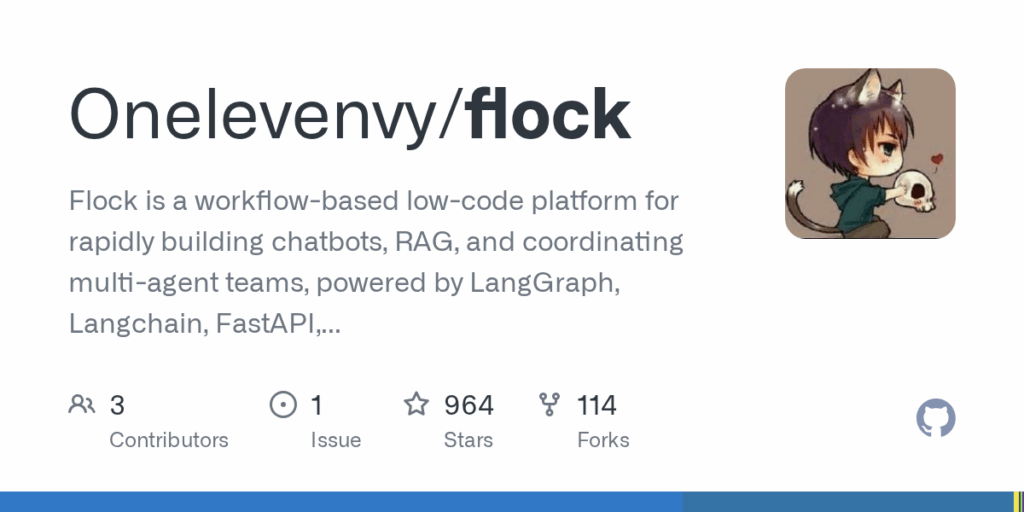Features
Flock exposes many prebuilt node types including Input, LLM, Retrieval, Tool, Retrieval Tool, Intent Recognition, Answer, Subgraph and Start/End nodes. Recent additions include an Agent Node for autonomous agents, MCP tools support to connect Model Context Protocol servers and convert MCP tools to LangChain tools, a Parameter Extractor node to output structured JSON, a Human Node for human-in-the-loop review, multimodal chat (image) support, If-Else conditional node, Python Code Execution node, Intent Recognition node and CrewAI integration. It supports tool calling, RAG with vector stores, observability via LangSmith, persistent chat history, open-source model support and multi-tenancy. The repo includes Docker and local build instructions, backend requirements (Python 3.12, uvicorn) and optional Celery for RAG tasks.
Use Cases
Flock helps teams and developers accelerate creation of conversational agents and multi-agent workflows by providing a low-code, modular orchestration layer. The node-based design enables rapid composition and reuse of sub-workflows, while Agent Node and MCP tooling let you integrate autonomous agents and external model/tool endpoints. Human-in-the-loop nodes support safety and approval flows. Built-in intent recognition, parameter extraction and retrieval nodes simplify common RAG and dialogue tasks. Observability and persistent conversations help monitor and continue sessions, and multi-tenancy supports multiple users and teams. Deployment guides, Docker Compose support and compatibility with open-source and hosted models reduce operational friction for prototypes and production deployments.








